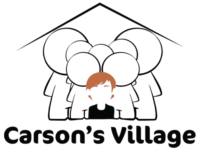Four things to know after a loved one has died:
- You may feel lost, helpless, empty, or even relieved. Any and all emotions are possible and acceptable.
- Each person mourns in their own way and in their own time.
- You might be overwhelmed, so use your friends and family members as a support system.
- There are many arrangements that must be made, and you may feel pressure from having to make a lot of decisions.
If someone close to you has passed away, you might be feeling lost or helpless. For some, this feeling can be so overwhelming and crippling that it impacts your day-to-day routine. Initially, you may not be able to do anything because of your new reality. You may find yourself forgetting things. You may also be asking “what if” questions to yourself. Whether it is an expected death or not, the question remains, what do I do next and how do I move forward?
CALL IN YOUR SUPPORT SYSTEM
During the first few days of losing a loved one, there might be a lot of people who reach out to you. It is perfectly fine not to respond to everyone while you continue to process everything and prepare for the next steps. You may have some friends who reach out to you because they are ready and willing to assist in whatever way possible. When you’re ready, try to include your support system in your process. Lean on those friends who can organize and help with whatever you may need. Allowing friends who serve as good support for you to be present in your home can help to make sure you are receiving love, a hug, or a shoulder to cry on when you need it.
FUNERAL PLANNING
To begin funeral planning, you may start with a doctor or a coroner for an official death pronouncement depending on where your loved one passed away. If they were in a hospital or assisted living facility when they passed away, this will be done for you. Next, try to determine if your loved one had a pre-arranged funeral plan. You may want to check with a family member or lawyer to determine if a “written/designated plan” had been created. If there was a plan, this can help guide your next steps in funeral planning.
If you cannot find prearrangement plans, you can start by choosing a local funeral home and contacting the director to help you navigate the planning process. If possible, involve other family members in this decision-making so all of the responsibilities aren’t on you. Remember, you may not think of everything at the moment, and it is important to have input from others to help speed up the process of solidifying the arrangements.
While this planning is usually to be done in the days following a loss, try to give yourself time to absorb and process what you are going through as things come up. Planning funeral arrangements is not an easy process, and doing this on top of the emotional difficulty of losing a loved one can be a tremendous task. Use the support available to you as you navigate this process, and be sure that your own needs are being met as you move forward.
HOW CARSON’S VILLAGE CAN HELP
The Advocates at Carson’s Village provide direct assistance during those first few days after a loss: they can help you find a funeral home, locate funding if you are unable to pay for the funeral, find a local grief therapist, and much more. All of Carson’s Village’s services are free — it is our goal to hold your hand through the first few days after a loss so carrying out the logistics of the funeral process does not rest entirely on your shoulders. Carson’s Village is here to help you carry that weight. To find an Advocate, click here.
